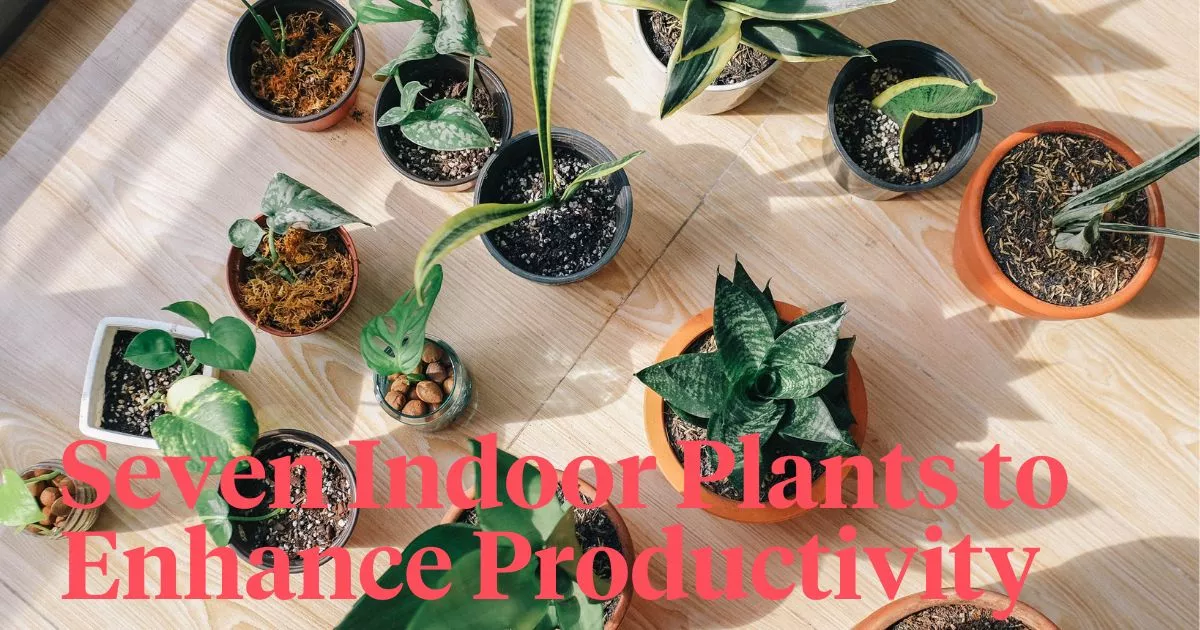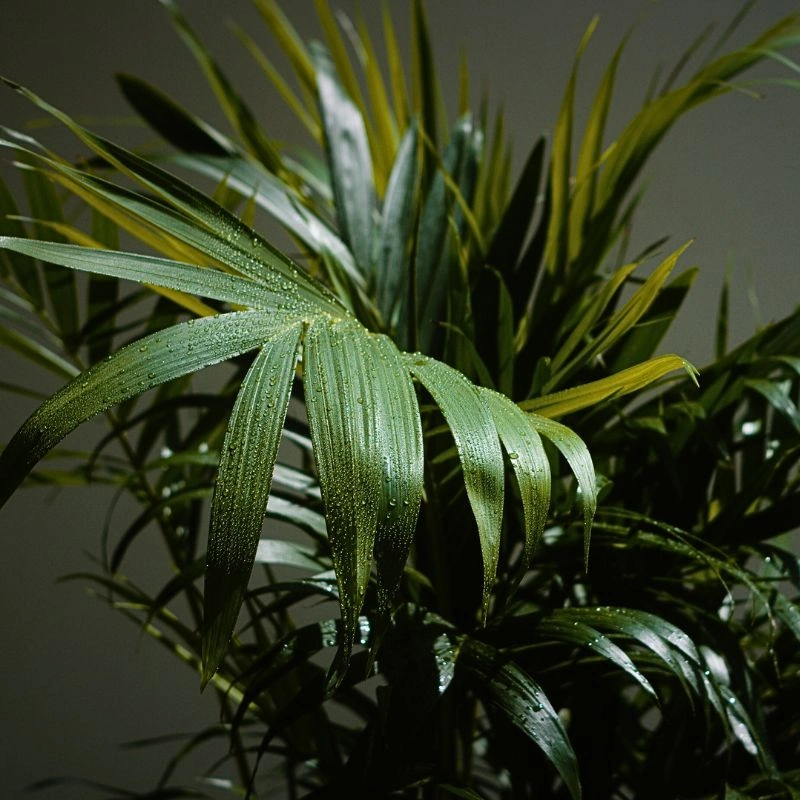An ideal study setup promotes productivity, contributing to effective learning and focused work, and an optimal study space should also include indoor plants. In addition to their beauty-enhancing qualities, indoor plants are known to greatly impact the productivity levels and health conditions of those inhabiting a study room. Incorporating plants into your study area can provide enhanced visuals while at the same time reducing stress and purifying the air.
Introducing green elements into your surroundings while studying can improve academic productivity and increase your chances of success. It is vital to note that students having difficulty completing their assignments can seek help from reputable academic writing enterprises like Peachy Essay. This article will discuss indoor plants to enhance productivity in the study room.

Snake Plant
The popularity of The Snake Plant as an effective houseplant known to filter pollutants from the atmosphere cannot be understated. According to studies, this plant excels in removing dangerous substances like benzene and xylene from the air, which means having it in your living environment can be beneficial. Commonly used household products like carpets and cleaners are likely sources of toxic particles that can harm one's health if they enter the body via breathing.
Still, the presence of Snake Plants in a home can contribute positively to improving indoor air quality by absorbing and neutralizing harmful substances. Snake Plants are known for their unique capability to release oxygen at night using crassulacean acid metabolism. At night, Snake Plants produce and exhale oxygen as opposed to most other types of flora, which do so via photosynthesis during daylight.
Peace Lily
Indoor garden enthusiasts adore Peace Lily or Spathiphyllum for its striking white blooms and amazing air-cleansing capabilities. This type of plant has a unique capability that allows it to effectively eliminate several environmental pollutants, including but not limited to formaldehyde and benzene. Exposure to toxins emitted by common household items like cleaning products or paints can adversely affect respiratory function and lead to serious health issues.
However, incorporating Peace Lilies in indoor spaces can lead to a healthier and safer environment since they can absorb and neutralize harmful substances. If you are looking for low-maintenance indoor plants, consider getting a Peace Lily, as they don't require much upkeep. These sturdy plants can bear slight neglect and still thrive well indoors.
Spider Plant
Spider Plants are so commonly used for indoor decoration because they can purify the air efficiently while requiring minimal upkeep. This plant species is also perfect for beginners and people with tight schedules because of its high adaptability to different environments. Harmful substances within household articles, such as carpets, furniture, and cleansing agents, contribute to significant health issues via pollution.
However, the absorption of toxins through its leaves and roots makes spider plants effective in filtering the air to create a healthier living environment. Suppose you want a conducive environment for learning and productive work in your study room. In that case, spider plants should be your go-to choice since they possess amazing air purification properties.
Aloe Vera
Aloe Vera has gained widespread recognition for its therapeutic value and ability to purify indoor air quality. Anyone who wants to add a natural air purifier with amazing healing properties in their study room or bedroom should consider Aloe vera as it releases oxygen during night-time. Aloe vera can be useful with its unique capacity for releasing oxygen during night-time, when the body's oxygen levels may decrease and lead to sleep issues like insomnia.
Aloe vera's release of oxygen supports better cognitive function during study sessions, which improves air quality and facilitates relaxation for better sleep. Low upkeep and air-enhancing effects make Aloe vera plants a great choice for those seeking an effortless indoor plant.
Golden Pothos
Golden Pothos is cherished as an indoor plant and adaptive in different lighting environments with excellent air purifying abilities. Look no further than this option for those seeking a healthy and aesthetically pleasing study environment. The looks of Golden Pothos are enhanced by its attractive cascading vines that have leaves that resemble the shape of a heart, and to add a natural touch of beauty to your study room decor, use variegated green and yellow leaves.
The graceful cascade of the Golden Pothos plant makes it an ideal option for beautifying your surroundings, and its trailing nature lets it drape elegantly from hanging baskets or grow up a trellis with convenience while maintaining its lush green colour.
ZZ Plant (Zamioculcas zamiifolia)
The ZZ Plant has earned its reputation as a tough indoor plant that can thrive in environments with little light exposure, making them ideal for decorations in study areas with limited natural lighting. If you do not possess much knowledge or have enough time to care for plants but still want them around your living space, then the ZZ Plant can be an excellent option as it requires minimal attention and can survive even in low-light conditions. This selection works wonders for study spaces that are not blessed with ample sunlight, and if you want to breathe life into environments that are tough on vegetation, the resilient ZZ Plant is your answer.
English Ivy (Hedera helix)
The English Ivy plant is an ideal addition to any study area, which offers visual appeal and the ability to purify the surrounding air. This versatile plant has two growing options; either let its drooping vines cascade beautifully in the air by planting it in a hanging container or have it trained against the trellis as an artistic background around your studying corner.
Reducing the presence of mould spores and airborne allergens makes English Ivy an efficient cleaner, and this device has been designed to effectively purify indoor air by filtering out toxins and other harmful pollutants. Although it flourishes best in bright indirect sunlight, its ability to acclimate to lower light settings makes it an ideal choice for versatility and suitability across multiple areas within a study room.
Adding indoor plants to your study room can greatly enhance productivity and promote overall wellness. Indoor plants with certain qualities for purifying the surrounding atmosphere assist in creating a healthier environment by minimizing harmful pollutants from the air supply; this may improve mental performance, such as cognitive function or concentration.
The study space becomes more visually appealing with indoor plants that add a touch of natural beauty, which helps to create a serene environment that promotes relaxation. Having indoor plants in the study area can add aesthetic appeal and promote feelings of relaxation, leading to better productivity.










